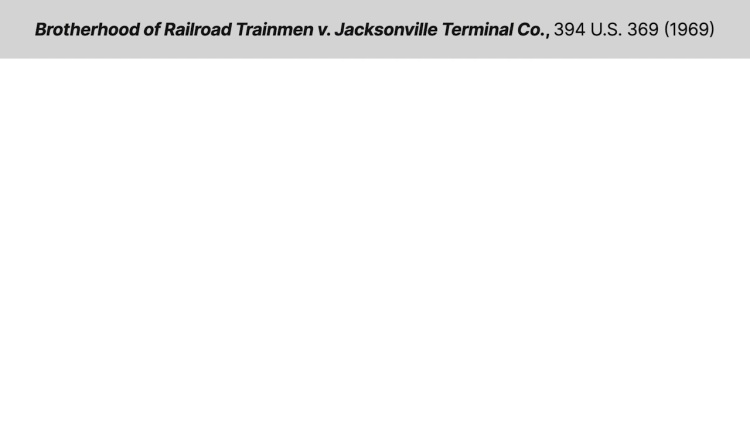Atlantic Coast Line Railroad Co. v. Brotherhood of Locomotive Engineers
United States Supreme Court
398 U.S. 281 (1970)
- Written by Robert Schefter, JD
Facts
Atlantic Coast Line Railroad Company (ACL) (plaintiff) owned Moncrief yard, a railroad switching yard near Jacksonville, Florida. In 1967, members of the Brotherhood of Locomotive Engineers union (BLE) (defendant) began picketing use of Moncrief yard over a labor dispute with their third-party employer. After being denied an injunction in federal court, ACL was granted an injunction in state court. In 1969, the United States Supreme Court held in Brotherhood of Railroad Trainmen v. Jacksonville Terminal Co., 394 U.S. 369 (1969), that unions had a right to picket under the Railway Labor Act and that the right was not subject to state-court injunctions. BLE then filed a motion in state court to dissolve ACL’s injunction, but the state court refused, holding that the decision in Brotherhood v. Jacksonville Terminal was not controlling. Rather than appeal in state court, BLE filed a motion in federal court seeking an injunction against the enforcement of the state-court injunction in favor of ACL. The district court granted BLE’s requested injunction. The appellate court affirmed on stipulation of the parties, and the United States Supreme Court granted certiorari.
Rule of Law
Issue
Holding and Reasoning (Black, J.)
Concurrence (Harlan, J.)
Dissent (Brennan, J.)
What to do next…
Here's why 910,000 law students have relied on our case briefs:
- Written by law professors and practitioners, not other law students. 47,100 briefs, keyed to 997 casebooks. Top-notch customer support.
- The right amount of information, includes the facts, issues, rule of law, holding and reasoning, and any concurrences and dissents.
- Access in your classes, works on your mobile and tablet. Massive library of related video lessons and high quality multiple-choice questions.
- Easy to use, uniform format for every case brief. Written in plain English, not in legalese. Our briefs summarize and simplify; they don’t just repeat the court’s language.





